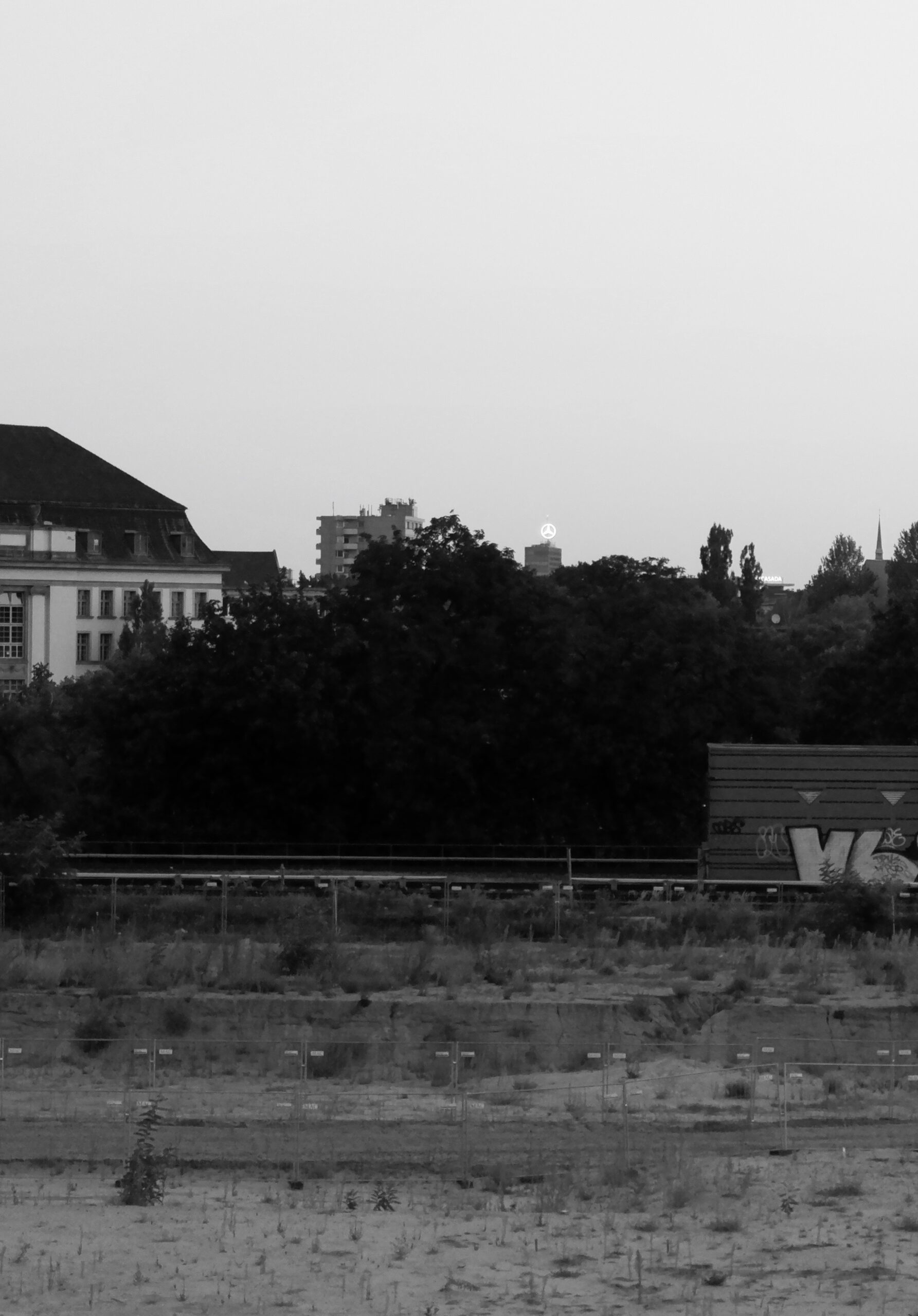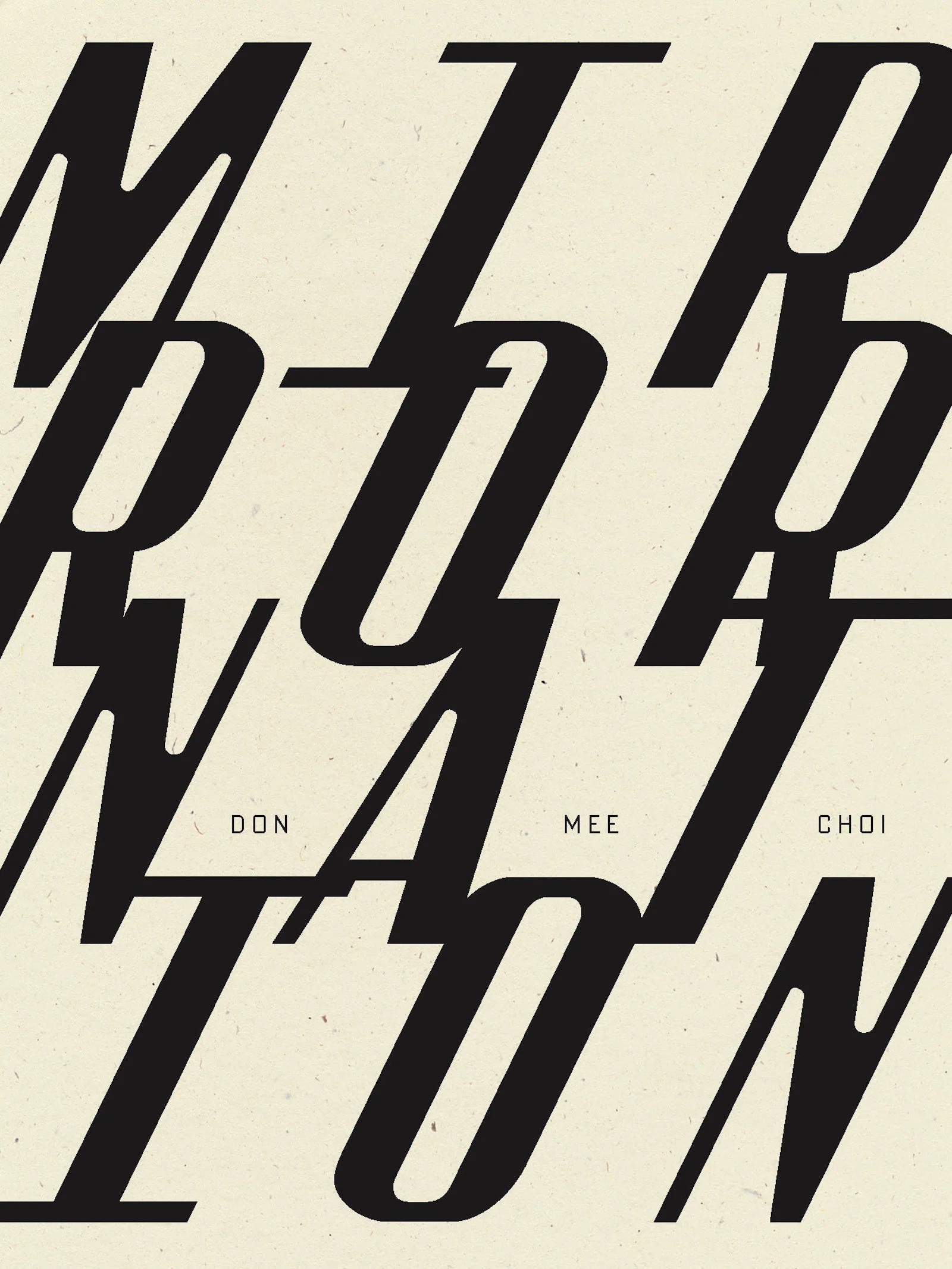The westerly wind blows across a patch of desert outside my apartment window facing north: the Deutschland Radio, the ever-spinning ring of Mercedes Benz, and the metal fences set up for the construction of new housing. Only the fences remind me of home—the endless barbed wire across the waist of a nation. A cooler temperature expected this morning before the heat wave arrives in a day. On 28.6.1950, in Seoul, three days after the war had begun, my father washed his face and looked up at the stars on a clear night, then decided to head out to the city center. The photos of the war had yet to appear in the nation’s newspapers. No one was on the road. The East Gate was still standing, but the police station was empty. The tracks shone under the stars but there were no trams to be seen. I merely merrily washed my face and looked out to the ring of Benz lit at dawn, and finally caught a strand of remote signal from my father. V6. V frequently stands for violence and virtue. An understatement, perhaps. I didn’t know what to make of 6, except that 6 persists as June, and that it comes after number five, which has been discreetly established as 5=O in a glossary of translingual puns. As my father did seventy years ago to his unborn daughter, I channeled onto the most remote canyons of the desert—Are you OK, ROK? I’m childless, so I have no choice but to channel onto the desert of memory.
In my future city of two Koreas, I began reliving the acute feelings of separation from home. I would shake them off by midmorning, by pacing in my spacious apartment, then they’d return again the following day. The incessant chirping of the sparrows perched on tall birch trees outside my balcony only heightened my grief. This inexplicable ailment, which began in Hong Kong when we left South Korea during the dictatorship, had magnified over the years, then it had somewhat subsided as I settled, often numbing myself with work involving translation after translation. The unexpected return of my childhood grief prompted me to search for the remote waves of my father, my other universe. The ring of Benz was a radar of some sort. Like a compass, it operated magnetically and, not surprisingly, it also had tremendous capacity for sonic sensitivity. It didn’t take me long to detect the exact location. I spotted my father on a bridge, once again. This time he was standing on Glienicker Brücke, between Berlin and Potsdam. The fate of Korea’s waist was decided at the 1945 Potsdam Convention, by Churchill, Stalin, and Truman. From where I stand, facing north, the geopolitics of division have long been eroded by incessant wind, vanished or buried beneath the sand. Korea’s waist remains fatefully inconsequential. My father waved to me across a vast distance, from his present dimension: We are still not OK!





